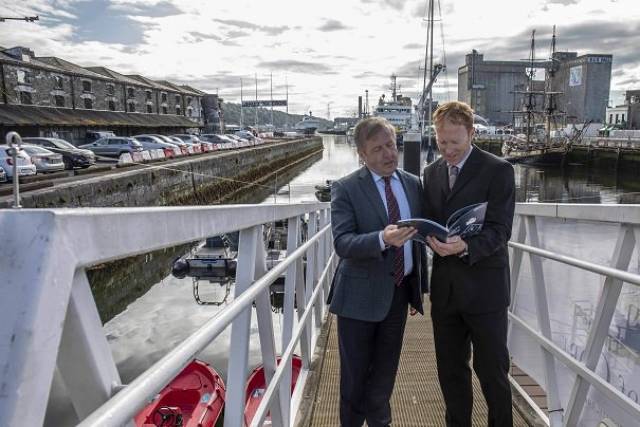The Socio-Economic Marine Research Unit (SEMRU) at NUI Galway has released its latest update on the performance of Ireland’s Ocean Economy.
Coinciding with the Our Ocean Wealth Summit and the Government’s Annual Review of its Integrated Marine Plan – Harnessing Our Ocean Wealth, the report presents a complete and comparable profile across thirteen marine related industries in Ireland.
The update shows that Ireland’s ocean economy has a turnover of €6.2 billion, with a direct economic contribution, as measured by GVA, of €2.2 billion or 1.1% of GDP. Taking into account indirect GVA generated from ocean related activity in Ireland total GVA is €4.2bn, representing 2% of GDP.
Dr Stephen Hynes, co-author of the report and Director of SEMRU based at the Whitaker Institute for Innovation and Societal Change at NUI Galway, has advised Government that “the latest figures indicate that Ireland’s ocean economy continues to see growth across both established and emerging marine industries. We expect the Government’s 2020 target will be exceeded next year, and the gap is narrowing in terms of the Government’s ambitious 2030 target”.
SEMRU categorises Ireland’s ocean economy into two broad categories:
Ireland’s Established Marine Industries – comprised of traditional marine sectors such as shipping, seafood, tourism in marine and coastal areas, offshore energy, marine manufacturing & engineering and marine retail services – have an estimated turnover of €5.8 billion, provide employment of 32,048 FTEs. These segments of the ocean economy represent 93% of the total turnover and 94% of total employment. The top three sectors in terms of value and employment continue to be shipping, marine tourism and seafood.
Ireland’s Emerging Marine Industries – comprised on marine renewables, marine biotechnology, advanced marine products and services, and maritime commerce – have an estimated turnover of €459 million and provide employment to 2,084 FTEs representing 7% of the turnover and 6% of employment in Ireland’s ocean economy. Of the emerging industries marine commerce and the marine biotechnology and bio-products industries experienced the largest increases in turnover and GVA in the 2016-2018 period.
This year’s report also includes a socio-demographic profile of Ireland’s coastal economy and presents the values of a range of marine ecosystem services to Irish society. As pointed out by Dr Hynes “tracking marine economic activities, monitoring developments in our coastal economy and estimating the marine ecosystem service benefit values to Irish society promotes more informed maritime planning and more effective marine policy formation”.
The latest ocean economy report is funded by the Marine Institute through its Marine Research Programme. Dr. Peter Heffernan, CEO of the Marine Institute notes that “Ireland is one of the few countries that has access to this regularily updated marine economic data, with trends now spanning over 10 years. These independent data and trends published by NUI Galway underpin the Vision set out by the Government in Harnessing Our Ocean Wealth whereby Ireland’s vast marine territory is harnessed in a sustainable manner and is recognised as an integral element of Ireland’s overall economy, generating benefits for Irish citizens and supported by integrated policy, planning and regulation”.
Commenting on the report, Professor Alan Ahearne, Director of the Whitaker Institute at NUI Galway stated: “With the uncertainty being generated by Brexit, our Ocean Wealth has never been more important to our economic prosperity. The figures published by SEMRU clearly demonstrate the importance and impact of targeted investment and research in developing a sustainable ocean economy here in Ireland”.
The latest figures have been announced by Minister for Agriculture, Food & the Marine, Michael Creed, TD at the Annual Ocean Wealth Summit in Cork. The 2019 Summit will see national and global leaders discuss the health of our oceans. This includes senior Government and UN representatives from island states sharing experiences on oceans’ health and climate change.
An inforgraphic on Ireland's 2018 Ocean Economy can be viewed here.
In addition for further information on SEMRU, please visit www.nuigalway.ie/semru/

































































